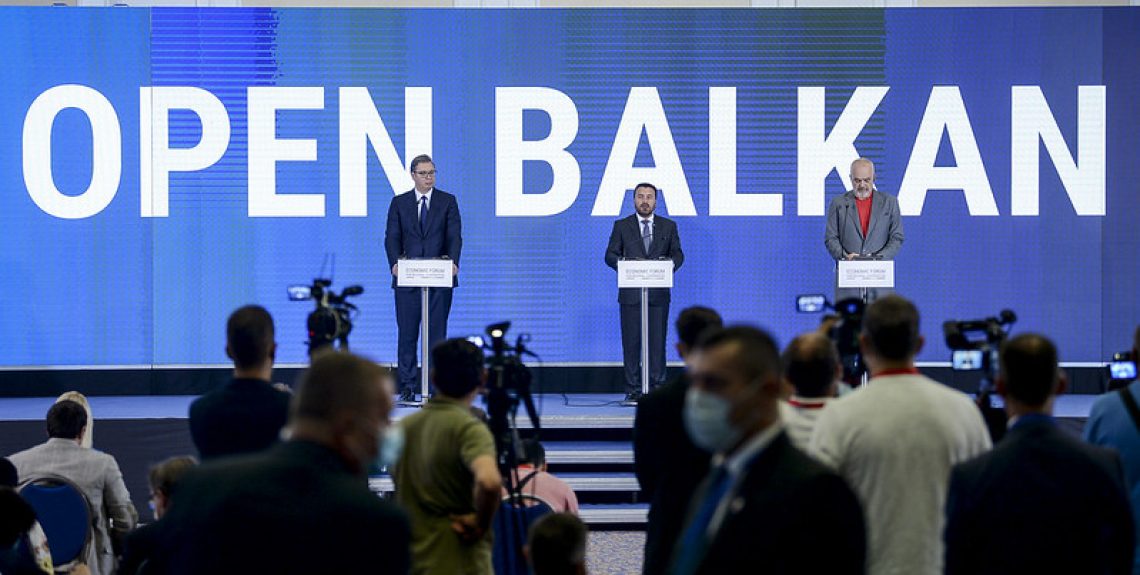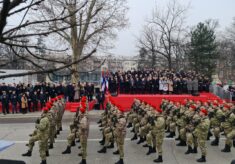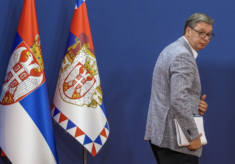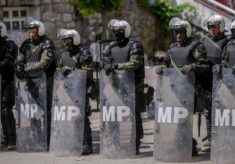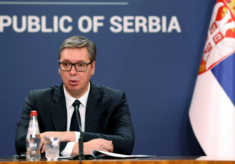Amidst delays in the EU accession process and enlargement fatigue in Europe, three Western Balkans countries – Serbia, Albania and North Macedonia – are working to create a kind of “Mini-Schengen” area in the Balkans in order to introduce in the region, before becoming full members of the Union, fundamental freedoms such as free movement of persons, goods, services and capitals. However, three other Balkan countries, namely Bosnia and Herzegovina, Kosovo and Montenegro, albeit invited to join, seem to remain sceptical about the initiative, a possible seed of failure of the entire initiative.
The political leaders of the three countries that originally launched the initiative already back in October 2019, calling it “Mini-Schengen” or “Little Schengen” after the EU’s border-free zone, met again in Skopje at the end of July. Albanian Prime Minister Edi Rama, Serbian President Aleksandar Vucic and North Macedonia’s Prime Minister Zoran Zaev decided to rename the initiative in “Open Balkan” and committed to eliminate all border obstacles for their citizens and businesses by 2023, creating a free movement area between their countries. The “Open Balkan” free economic zone would have about 12 million citizens in total.
Rama, Vucic and Zaev took concrete steps forward, signalizing that they sincerely want to implement the project in the next two years. Among the most significant documents signed in Skopje was a memorandum on easing trade, scrapping paperwork and speeding up the transport of goods between borders. The three leaders discussed also opening special fast tracks at border crossings for citizens of Serbia, Albania and Northern Macedonia. They will also work on the exchange of data between customs offices in order to facilitate imports, exports and transit of goods. Furthermore, they agreed to de facto unify the Serbian, Albanian and North Macedonia labour markets. The step will be implemented by simplifying procedures for issuing work permits, and by mutually accepting diplomas and job qualifications. In this way, the countries involved also hope to attract more foreign investments. The three leaders signed also an agreement that fosters regional cooperation and mutual aid during natural catastrophes.
“Our political will, that of President Vucic, Prime Minister Rama and mine, is an expression of our maximum commitment to provide all conditions that depend on the governments of our three countries for effective regional cooperation,” said North Macedonia PM Zoran Zaev. “We do not have the luxury of wasting time, because we have lost decades and centuries,” noted Albanian PM Edi Rama, stressing that the region cannot remain a prisoner of the past. From 2023 “there will be borders, but there will be no stopping for our citizens (…) It will be a historic moment,” Serbian President Aleksandar Vucic said while assuring that “this initiative” will change “everything in the region.”
The three leaders reiterated their disappointment over the EU’s failure to start membership talks with Albania and North Macedonia, but they claimed that the Open Balkan initiative will not constitute an alternative to EU accession, but only a way to make the Balkans more prosperous and connected while waiting to join the Union. The western Balkan countries “cannot wait for all of the EU’s internal problems to be solved” for the region to move forward, Zaev remarked.
The initiative has been positively hailed by the European Union and the United States, with Germany welcoming it as an important step towards a deeper “regional cooperation,” noting at the same time that it should be inclusive to all six countries of the Western Balkans.
Zaev, Vucic and Rama called on other countries in the region to join the ‘Open Balkan’ initiative, stressing that it represents an opportunity also for their economies, creating a more modern and economically unified Western Balkans, more attractive to investors.
However, the project did not still receive the political support of all Western Balkan countries. The reluctance of Kosovo, Montenegro, and Bosnia and Herzegovina to join the Open Balkans initiative persists, with Pristina being the most vocal opponent of the project. Kosovo’s PM Albin Kurti dismissed the initiative, defining it as “visionless.” The Open Balkan project “creates the idea (…) that there is another alternative apart from the region’s joint path to the EU. Conveying this message is as dangerous as it delays the European integration,” Kosovo’s Foreign Ministry added.

